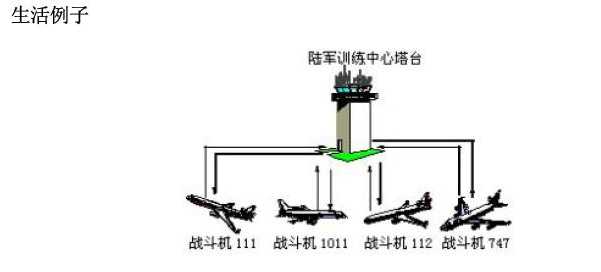标签:tab 指定 *** 中间 一个 轻松 rgs ted 传递
一张图片得以理解为什么要使用中介者模式:

各个对象之间相互引用,紧耦合体现的淋漓尽致,如果此时需要发生变化,那么改代码就糟糕了,因为无法修改。
如果我们使用一个中介者来完成对象之间的交互,那么看起来明朗多了,每个对象只需要与中介者产生联系,将请求通过中介者发给接收对象,这有点像依赖倒转原则,这样不但看起来清晰,以后再修改逻辑的时候将会十分的方便与轻松。这就是中介者模式!

适用性:
1.一组对象已经定义良好但是复杂的方式进行通信。产生的相互依赖关系结构混乱且难以理解。
2.一个对象引用其他很多对象并且直接与这些对象通信,导致难以复用该对象。
3.想定制一个分布在多个类中的行为,而又不想生成太多的子类。
***###***
每个对象可以接收指定对象的消息,也可以给指定的对象发送消息
中介者可以指定某个对象给另一个对象发送某些消息
#region 抽象中介者 abstract class AbstractChatroom { public abstract void Register(Participant participant);//可注册成员 public abstract void Send(string from, string to, string message);//可传递消息 } #endregion
#region 具体中介者 class Chatroom : AbstractChatroom { protected Hashtable hash = new Hashtable(); public Hashtable Hash { get; } public override void Register(Participant participant) { if (hash[participant.name] == null)//如果没有注册该人 { hash[participant.name] = participant; } participant.chatroom = this;//注册该实例内部的中间者为此中介者,这个是重点 } public override void Send(string from, string to, string message) { if(hash[to]!=null) { ((Participant)hash[to]).Receive(from,message); } } } #endregion
#region 对象成员基类 class Participant { public Chatroom chatroom { get; set; } public string name { get; set; } public Participant(string name) { this.name = name; } public void Send(string to,string message) { chatroom.Send(this.name,to,message);//通过中介者将所有的逻辑全部写在Receive中 } public virtual void Receive(string from,string message) { Console.WriteLine("{0} to {1}:‘{2}‘", from, name, message); } } #endregion
#region 具体成员类 class Beatle: Participant { public Beatle(string name) : base(name) { } public override void Receive(string from, string message) { Console.WriteLine("Beatle Receive"); base.Receive(from,message); } } class NoBeatle : Participant { public NoBeatle(string name) : base(name) { } public override void Receive(string from, string message) { Console.WriteLine("NoBeatle Receive"); base.Receive(from, message); } } #endregion
static void Main(string[] args) { Chatroom chatroom = new Chatroom(); //构建成员 Participant participant1 = new Beatle("小王"); Participant participant2 = new Beatle("小飞"); Participant participant3 = new NoBeatle("小李"); //注册到中介者 chatroom.Register(participant1); chatroom.Register(participant2); chatroom.Register(participant3); participant1.Send("小飞", "发送消息喽"); Console.ReadKey(); }

上述案例,体现了中介者中,虽然对象可以接收也可以发送,也可以通过中介者来实信息传递,如果每个地方都写一次逻辑的话,那么将使得代码十分混乱与复杂,巧妙的使用代码, 让所有逻辑写在发送或者接收里(不论使用接收还是发送,使用哪个,就需要在基类中定义该方法为虚方法,这样转过来的时候才会触发真正覆盖的实例方法)
这就是中介者模式喽!
标签:tab 指定 *** 中间 一个 轻松 rgs ted 传递
原文地址:https://www.cnblogs.com/ningxinjie/p/12189217.html